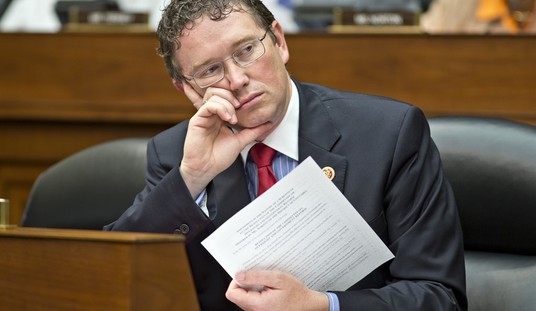Earlier this week, the New York Post warned readers that the Obama administration planned to use an $8.3 billion in HHS appropriations as a “slush fund” to hide the impact of ObamaCare on choice options for seniors that would otherwise have hit just before the election in November. That same day, the General Accounting Office blasted the Obama administration for its attempt, and called on HHS to reverse itself. Today, Rep. John Kline, chair of the House Education and the Workforce Committee, confronted HHS Secretary Kathleen Sebelius over the GAO report, but Sebelius remained defiant — and insisted that the Obama administration would proceed with its slush-fund plans:
U.S. Health and Human Services (HHS) Secretary Kathleen Sebelius today vowed to continue a controversial “demonstration project” that has come under fire recently by the nonpartisan Government Accountability Office (GAO).
The Democrats’ 2010 health care law cut $200 billion from Medicare Advantage, a program that currently serves 12 million seniors. The Congressional Budget Office estimates the cuts will result in 5 million fewer seniors participating in the popular program. The GAO recently criticized an $8 billion national demonstration project run by the administration that may have been intended to mask the impact of these cuts until 2013. The GAO reports the design of this project “precludes a credible evaluation of its effectiveness.”
The GAO has called on HHS to cancel this unprecedented multi-billion dollar program. However, when asked by Education and the Workforce Committee Chairman John Kline (R-MN) if the administration would follow the GAO’s recommendation, Secretary Sebelius stated she has “no intention of canceling the project.”
Here’s a reminder of what the GAO thinks of this “demonstration project”:
GAO, the investigative agency of Congress, did not address GOP allegations that the bonuses are politically motivated. But, its report found the program highly unusual. It “dwarfs” all other Medicare pilots undertaken in nearly 20 years, the GAO said.
Most of the bonus money is going to plans that receive three to three-and-half stars out of a possible five stars on Medicare’s quality rating scale, the report said.
Available through 2014, the bonuses will soften much of the initial impact of the Medicare Advantage cuts, acting like a temporary reprieve.
This year, for example, the bonus program offset about 70 percent of the cuts in the health care law. Indeed, Medicare Advantage enrollment is up by 10 percent and premiums have gone down on average.
But GAO questioned whether the bonus program will achieve its goal of finding better incentives to promote quality. “The design of the demonstration precludes a credible evaluation of its effectiveness in achieving (the administration’s) stated research goal.”
So Sebelius wants to spend over eight billion dollars on a “demonstration project” whose design makes it impossible to evaluate, which just coincidentally provides some political cover for the White House just before seniors go to the polls in the presidential election, and which won’t actually improve care. Did anyone expect anything different from Chicago-sur-le-Potomac?








Join the conversation as a VIP Member